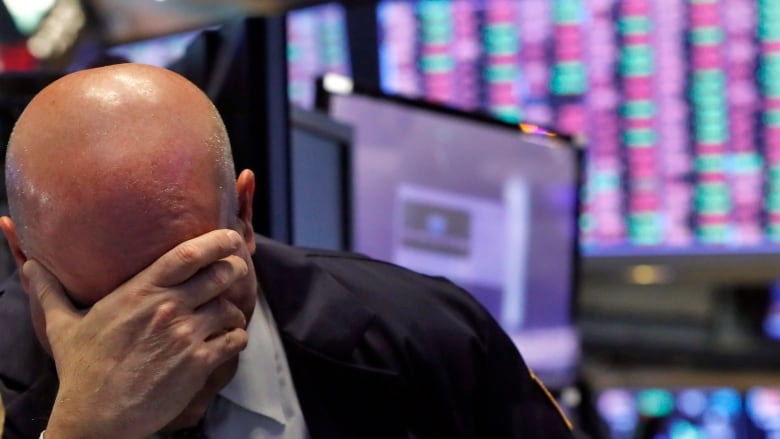
Depression and the economy; not knowing is an uncomfortable experience. As human beings, we are naturally curious. We seek to understand, predict and control as much as we possibly can. The feeling of having some sort of control in our lives helps us learn and it keeps us safe. Uncertainty can feel dangerous because we cannot predict with complete confidence what will happen. As a result, both our hearts and minds may race.
While it is quite natural to experience uncertainty as uncomfortable, for many people it is seemingly unbearable. Seasoned professional therapists and counselors will suggest that finding it difficult to cope with the experience of not knowing could seriously affect our mental health – occurring alongside a number of conditions.
But does uncertainty, or economic uncertainty, play any part in causing depression? Depression and the economy can go hand-in-hand with mental health problems while learning how to cope.
It’s easy to see how the concept of uncertainty is linked to mental health. If uncertainty can feel dangerous, then it might feed our worry and anxiety. What’s more, if getting rid of that feeling of uncertainty feels essential, then the compulsion to wash our hands again and again to make sure they are clean and safe might also feel essential. If this condition of controlling things around you, it can trigger Obsessive Compulsive Disorder, for example.
And if we ultimately feel unable to cope with the change and unpredictability life throws at us, then it’s understandable that we are at risk of feeling defeated and depressed.
The Struggle with Uncertainty
The struggle with uncertainty does help us to understand depression. Some evidence suggests that we may find that our mood is more negative when we feel less able to cope with the unknown. But low mood is only part of the experience of depression, so fuller sessions are needed with a counselor to determine a variety of factors.
Understanding what underpins mental health difficulties is important because it can help us understand how to provide better support for the many of us who have these experiences. Mental health difficulties are more common in times of economic uncertainty, or uncertainty in one’s life in general. In fact, they often occur together including depression and the economy.
For example, the human process of thinking repeatedly and unhelpfully about our economic concerns or other worrisome aspects of our lives may lead to both anxiety and depression.
Another example of economic uncertainty is falling below the line of poverty. Poverty increases the risk of mental health problems and can be both a causal factor and a consequence of mental ill health. Mental health is shaped by the wide-ranging characteristics (including inequalities) of the social, economic and physical environments
in which people live. Successfully supporting the mental health and wellbeing of people living in poverty, or in times of economic uncertainty, and by reducing the number of people with mental health problems experiencing poverty, typically require engagement with a therapist.
Coping with Job Loss
Losing your job can be one of the most painful and traumatic events that you will ever have to endure. Depression and the economy, or economic situation, can affect every aspect of your life, from your interpersonal relationships to your sleep patterns. It can cause feelings of anger, inadequacy, fear, shame, failure, isolation, and embarrassment, to name just a few.
In fact, if you remain unemployed for an extended period, a situational depression may ensue. Job loss is one of the most life-changing experiences one ever faces. Its negative impact on individuals is exceeded only by the loss of a loved one or a family breakup.
Many professionals feel that other than the death of a child or going through a divorce, job loss is probably the single most terrible event of a lifetime.
What makes job loss so traumatic is the shattering blow that it delivers to the self-esteem. When you are let go from a position, for whatever reason, the underlying or subliminal message you may receive is, “I’m a failure. I am just not good enough. No matter what the economic times, if I were any good they would have kept me.”
Isolation and Counterproductive Behavior
Sudden job loss and economic uncertainty tends to have an isolating effect. When people undergo divorce or other painful experiences, they tend to share with those whom they trust. They talk it out with business associates, friends, and family.Consequently, there will always be people to comfort them and offer them advice.
Conversely, when people lose a job or feel like the economy may have a negative impact on their own lives, the last thing in the world that most people want to do is tell others what has happened, fearing that others will perceive them as failures or “exaggerating.”
In uncertain times or when dealing with job loss, many people will withdraw into a self-induced “code of silence” and wind up isolating themselves from the very people who are highly motivated to help. Unfortunately, this tendency to retreat behind self-created walls and limit social interaction is counterproductive to a job search or positive outlook that things will pass over time.
Minimize Stress When You’re Angry
Once reality sinks in that there is uncertainty, it’s natural to feel angry about losing your job or the economic situation. You might be mad at your employer, your former coworkers, the economy, or yourself. You might be mad at anyone and everyone around you.
It is always best to surround yourself with family and friends who understand your challenge. Perhaps seeking out professional counseling or guidance from your minister. There are also many community support groups available. Seek them out and participate in therapy if your anger turns to depression. In fact, you may not recognize the signs at first. As your outward anger subsides, you can start to move into the next stage.
Financial strain can make things worse, so avoid any rash money decisions that might stress you out later. For example, you probably don’t want to borrow from a retirement account or ignore your creditors during unemployment or a financial crisis, and you definitely want to avoid debt traps. These all have consequences that can add to your stress and fuel your anger or trigger depression.
If you or a loved one are having challenges confronting economic uncertainty, we highly encourage you to please reach out to Foundations Counseling today.



